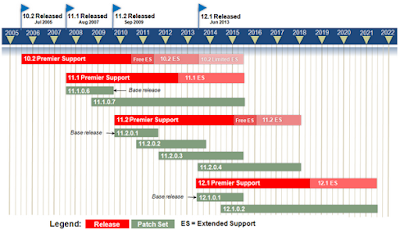In this case we need to know the ddl of job class called HISTORICAL_JOB_CLASS.
If you execute like SYSDBA
SQL> select dbms_metadata.get_ddl('JOB','HISTORICAL_JOB_CLASS') from dual;
the system return this error
ERROR:
ORA-31604: invalid NAME parameter "NAME" for object type JOB in function
SET_FILTER
ORA-06512: at "SYS.DBMS_METADATA", line 5805
ORA-06512: at "SYS.DBMS_METADATA", line 8344
ORA-06512: at line 1
or
If you execute like SYSDBA
SQL> select dbms_metadata.get_ddl('JOB_CLASS','HISTORICAL_JOB_CLASS') from dual;
ERROR:
ORA-31600: invalid input value JOB_CLASS for parameter OBJECT_TYPE in function
GET_DDL
ORA-06512: at "SYS.DBMS_METADATA", line 5805
ORA-06512: at "SYS.DBMS_METADATA", line 8344
ORA-06512: at line
but if you execute like SYSDBA
SQL> select dbms_metadata.get_ddl('PROCOBJ','HISTORICAL_JOB_CLASS') from dual;
the system return
BEGIN
dbms_scheduler.create_job_class('"HISTORICAL_JOB_CLASS"',NULL,'HISTORICO',64,NULL,
'Default Job Class for Bath jobs'
);
COMMIT;
END;
That's the right way to know the ddl of job or job_class

